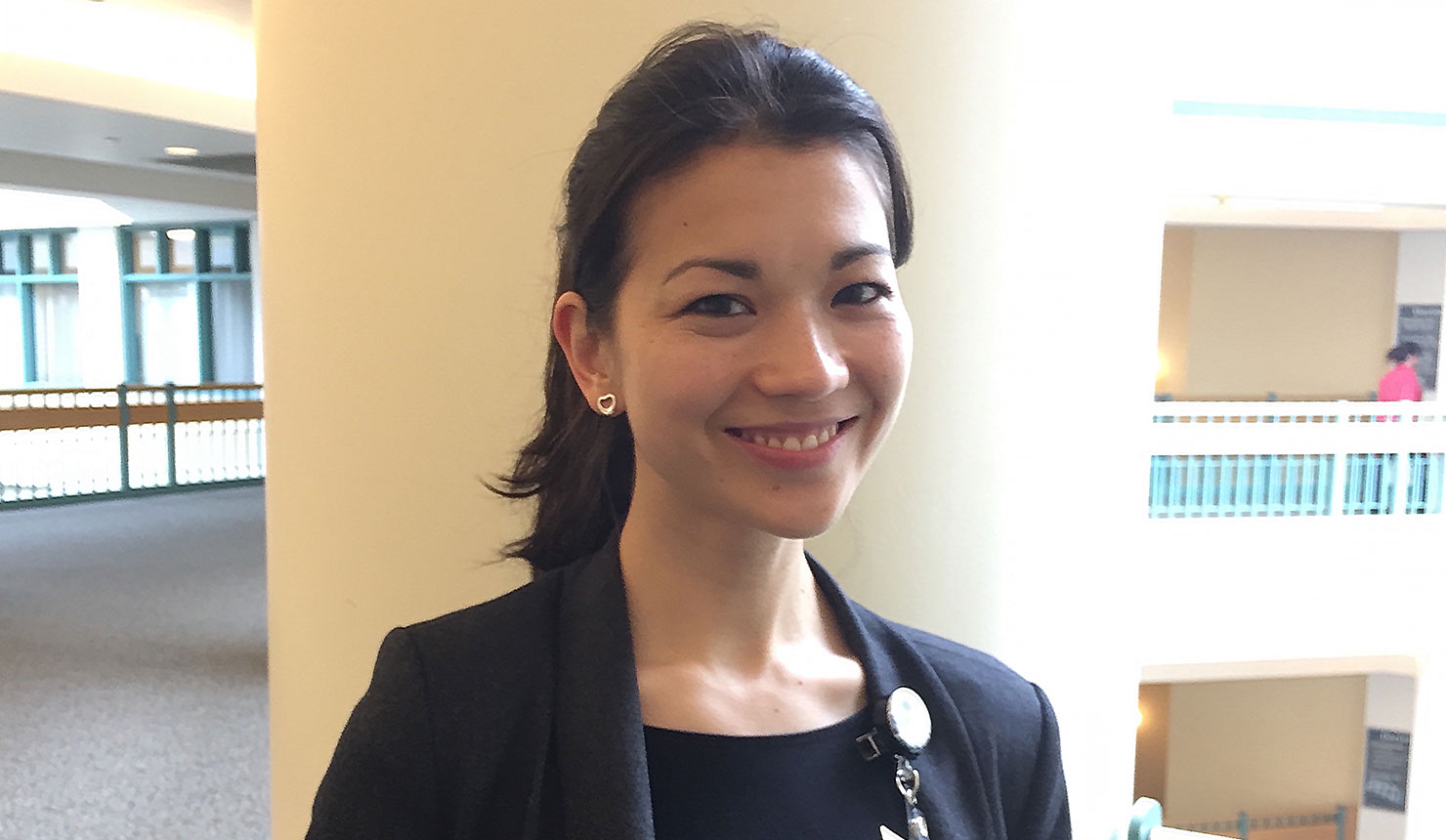
Using the conduct of physicians in Nazi-occupied Europe as a lens through which to examine contemporary medical ethics, the Fellowships at Auschwitz for the Study of Professional Ethics (FASPE) gives medical students an opportunity to participate in a two-week course of study focusing on ethical problems doctors face in various practice settings.
Geisel School of Medicine student Natalie Ring ’18, an active member of Physicians for Human Rights, who was selected by FASPE to spend time this summer in Germany and Poland, says the fellowship will enable her to make more ethical decisions when practicing medicine. Ring is among 63 fellows chosen from a competitive pool of international applicants.
“I feel very lucky that at Geisel we have a very active Physicians for Human Rights chapter with fantastic faculty mentors, which has allowed me to nurture my interest in human rights,” she says.
“During my third year of medical school, I saw so many instances of how physicians are faced with ethical decisions: allocating limited bed-space, navigating care for unresponsive patients, and disclosing medical errors are just a few examples,” she says. “I recognize that just because I intend to do well, I am not (and none of us are) exempt from making unethical decisions on the wards, and I hope to minimize the chances of that happening by deepening my understanding of ethics through the FASPE program.”
Ring’s motivation for applying to the program stems from a personal experience—a patient interaction while on her internal medicine rotation in San Francisco, CA where her team admitted a patient who was a Holocaust survivor.
“Being German, I thought he would not tolerate my presence on the team, but he was never anything other than kind and encouraging,” says Ring who is from Munich. “He told me a lot of stories during his hospital stay—both about his experience during the Holocaust and about his life after moving to the US.”
Though Ring is knowledgeable about the unethical research conducted on human subjects during the Holocaust, which led to establishing the Nuremberg Code, she says she cannot understand how physicians and citizens allowed those atrocities to happen. “It’s easy to see in hindsight that these events should not have taken place, but what are our responsibilities for preventing such atrocities in the future?”
FASPE’s founder and chairman writes in its announcement of this year’s fellows, “By educating students about the causes of the Holocaust and the power of their chosen profession, FASPE seeks to instill a sense of professional responsibility for the ethical and moral choices that the Fellows will make in their careers and in their professional relationships.” Ring will begin her fellowship in Berlin then travel to Krakow and Oświęcim (the home of Auschwitz) in Poland.
“As a collective group of health care providers in a field rooted in science, it is important to continue to advocate against torture, for example, and discredit any claims that it is a useful or medically safe interrogation technique,” Ring says.
“It will be interesting to see how historical lessons from the Holocaust shape our discussion of two other important topics I hope we will be able to explore—capital punishment and physician aid-in-dying.”
She says that by becoming part of the FASPE community, she will have another venue to continue engaging with these issues throughout her career as a physician.